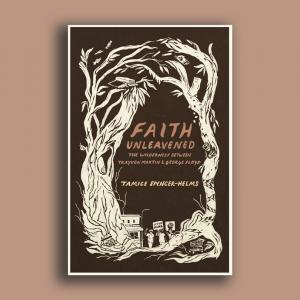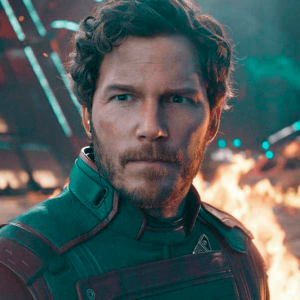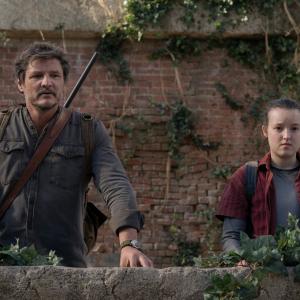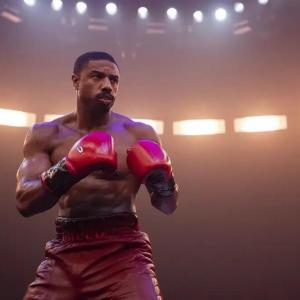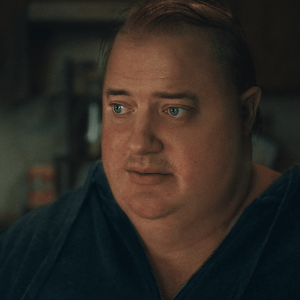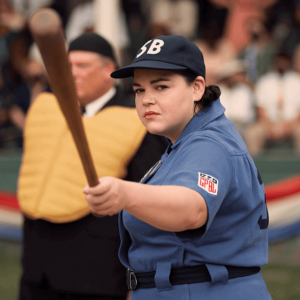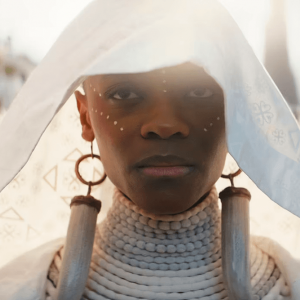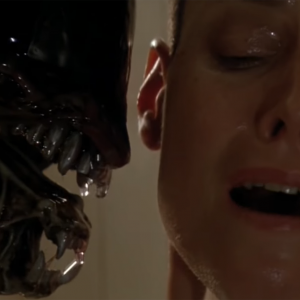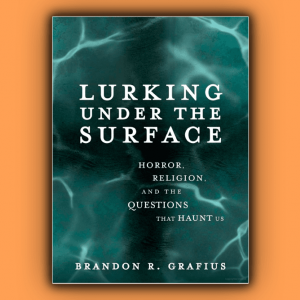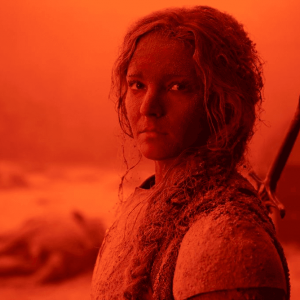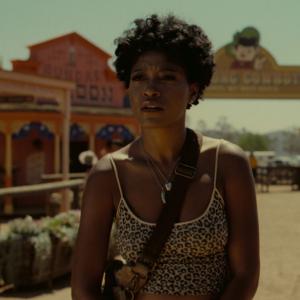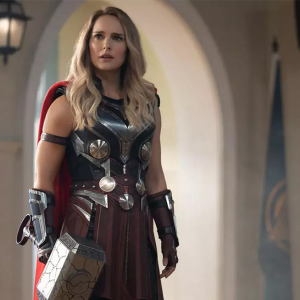
JR. Forasteros pastors the Haven Collective in Dallas, co-hosts the Fascinating Podcast, and wrote Empathy for the Devil. He's on the quest to smoke a perfect brisket. His wife, Amanda, skates for Assassination City Roller Derby as Mother Terrorista. They're always looking for a new adventure, and their board game collection has been described as 'excessive' and 'really fun'. JR. has bylines at Relevant, Think Christian, Reel World Theology and more.
Posts By This Author
The Best Christian Movie You’ve Never Seen
THE BEST CHRISTIAN MOVIE you’ve never seen (even though it was Oscar-nominated for best picture!) turns 10 this year. That movie is Philomena, adapted from The Lost Child of Philomena Lee: A Mother, Her Son and A Fifty-Year Search, by British journalist Martin Sixsmith. The film stars Dame Judi Dench as the titular mother and Steve Coogan as Sixsmith. While the book primarily focuses on Philomena’s son Michael Hess, the film more closely traces the mother’s story. As a pregnant teenager, Philomena was abandoned to a convent of nuns who forced young women to work without pay and sold their children to wealthy Americans looking to adopt.
On her son’s 50th birthday, Philomena weeps, clutching the only pictures she has of him. Despite her efforts, she has never been able to learn his fate. When Sixsmith, a disgraced journalist, learns of Philomena’s plight, he agrees to help her. What began as a distraction from his own troubles soon shifts to captivation. Despite Philomena’s assurances that the sisters of the convent have done their best to care for the women and children in their charge, Sixsmith uncovers a devilish conspiracy of silence.
The Question of Sin at the Heart of ‘Barbie’ and ‘Oppenheimer’
Both films are sympathetic to creators, but neither film lets their creations off the hook. Oppenheimer worries aloud how the nuclear power he unleashed will shape the atomic age. Barbie faces a lunch table of schoolgirls who tell her exactly how the Barbie beauty standards made them feel un-feminine. But both films ultimately move beyond the myth of the single creator and focus on the forces that shape that creation’s ongoing impact on the larger world.
What Dying Churches Can Learn from ‘The Bear’
In this day and age, even a very good restaurant struggles to survive; thriving is a pipe dream. And in this way, the restaurant industry doesn’t sound so different from Western Christianity.
White Jesus' Hellish Influence
Tamice Spencer-Helms on what it means for Christianity and society to leave white supremacy behind.
Tamice Spencer-Helms shows how colonialism and white supremacy are embodied in a Jesus made in Christian Europe's image.
‘Across the Spider-Verse’ Challenges the Idol of Sacred Stories
Who gets to belong? This was the question Miles Morales asked himself in 2018’s Spider-Man: Into the Spider-Verse. The smash-hit film introduced superhero movies to the multiverse, the idea that multiple universes exist parallel to each other, marked by only minor differences between them.
Legislating the Ten Commandments Isn’t the Same as Keeping Them
The Senate of my home state, Texas, recently made news for passing three bills designed to bring Christianity into public schools. As I told NewsNation when they interviewed me earlier this week about the proposed legislation, I think this is an example of a government attempting to force beliefs on people. Yesterday, the State House failed to pass a law that would’ve required the Ten Commandments to be displayed in public schools. SB 1515 would’ve required that “a public elementary or secondary school shall display in a conspicuous place in each classroom of the school a durable poster or framed copy of the Ten Commandments.”
Republicans in Texas argued that this move would reinforce essential American identity because America was founded on so-called “Judeo-Christian” principles. According to the Texas Tribune, Republican Lt. Gov. Dan Patrick defended the law by saying, “Bringing the Ten Commandments and prayer back to our public schools will enable our students to become better Texans.”
What Distinguishes YHWH From the Destructive Gods of Marvel?
What does it take to survive the wrath of gods? This has been a perennial question for Star Lord, Rocket, Gamora, Drax, Groot, Mantis, Nebula, and the others who have found themselves drawn into the orbit of the Guardians of the Galaxy.
Apocalypse Stories Reveal How to Create a World Worth Saving
From Revelation to ‘The Last of Us,’ our end-time imaginings can show us who we are — and who we could be.
HBO’S BIGGEST POST-APOCALYPTIC SHOW, The Last of Us, imagines a brutal world — and the mushroom zombies are only occasionally the source of danger. The first season followed Joel (Pedro Pascal), as he escorted teen Ellie (Bella Ramsey), who is immune to the zombie infection, to a hospital that can turn her immunity into a cure. In the final episode [SPOILERS], Joel and Ellie reach their destination. But when Joel learns they can only manufacture the cure by killing Ellie, he kills the doctor who was set to operate on Ellie. Joel’s decision raises the question: If the world can only be saved by sacrificing the innocent, is it a world we want to save? The Last of Us, itself an adaptation of a beloved video game, is far from the first show that employs apocalypse to interrogate our morality. Our end-time imaginings can show us who we are ... and who we could be.
The Greek title of the last book in the New Testament canon is Apokalypsis (“apocalypse”), the best English rendering of which is “revelation.” Revelation isn’t about the end of the world. It’s about a revelation — an unveiling. Revelation is one example from the genre of books we call apocalyptic literature. The genre, popular among Jews and Christians for hundreds of years before and after Jesus’ life, usually features a human receiving a message from some sort of divine messenger. The messenger wants to show the listener some deeper truth about the world — something that helps the audience participate more faithfully in the new world God is bringing forth.
‘Evil Dead Rise’ Shows the Horror of a World Without Resurrection
Unlike many possession stories, The Evil Dead franchise envisions a world without hope of exorcism. The unique version of evil in this franchise calls to mind the cruelty of empires old and new.
‘Creed III’ Puts Messianic Masculinity in the Ring
First-time director Jordan has a lot to say about masculinity, particularly Black masculinity. Ultimately, Creed III offers a hopeful vision of a future for Black men that doesn’t live in the shadow of white supremacy.
In ‘The Whale’ and in the Gospels, We Crucify What Disgusts Us
Darren Aronofsky’s latest film The Whale has made a splash, both for Brendan Fraser’s heart-wrenching portrayal of the 600-pound Charlie and for critics’ accusations of fatphobia in the film.
‘A League of Their Own': What Churches Can Learn From Women’s Sports
Churches far too often operate under the “male gaze.” The male gaze, a term I'm borrowing from film criticism, always answers the question of “Who is this for?” with “Well, men, of course.” Some congregations, even though they affirm women pastors, worship directors, and singers, still caution them to dress so that the men in the congregation don’t find them “tempting.” The male gaze is always cisgendered and heterosexual, so churches that are formed by the male gaze are structured to be hostile toward queer people (no matter how kind congregants in those churches are to queer individuals).
‘Wakanda Forever’ Is Mired in Grief
But it’s not the absence of Chadwick Boseman — whose death in 2020 is paralleled by T’Challa’s fate in the film — that makes the film fall short. Wakanda Forever suffers from the same ailment as much of the larger Marvel Cinematic Universe: It tries to offer individualistic answers to systemic evils. Unfortunately, there are evils in the world we can’t simply punch to death
When Monsters Serve as Prophets
Horror can reveal truths about systems and structures that work to protect the status quo.
THE PRIEST WALKS into the bedroom to face the little girl. It’s not a little girl, though. Something dark, something other looks out from her eyes. It opens her mouth to spew blasphemies, obscenities. The priest raises a crucifix, shouting, “The power of Christ compels you!”
So goes The Exorcist, the 1973 Oscar winner directed by William Friedkin. As a 17-year-old, I was not prepared for the visceral horror of seeing a possessed young Regan (Linda Blair) serve as the battleground between God and the devil. Neither were my Southern Baptist youth group friends who watched with me in my home. And neither were their parents, who (according to my long-suffering mother) were quite angry that I had hosted this viewing.
On the surface, those parents’ horror is understandable. The Exorcist more than earns its R rating, with gore and a good bit of blasphemy. But sit with Pazuzu (the demon) for a little longer, and it becomes clear that the film aligns well with conservative evangelical politics — a perspective in which I was raised and which persists in many corners of the U.S. church today.
A Spooktacular Book for Jesus-Loving Horror Fans
There’s a kind of willful ignorance horror-averse Christians demand, because the truth is we don’t want to sit with the shadows or go down into the basement. We want to sweep all the ugly parts of life back under the bed where they might go bump in the night but won't trouble us in the light of day.
‘Rings of Power’ Is a Tolkien Tale of the Corruption of Goodness
The stories we tell ourselves matter, even if you’re an immortal elf. The first season of Rings of Power, Amazon Studios’ new 8-episode prequel to The Lord of the Rings, opens with the scene of a young Galadriel, the Elvish royalty who will refuse Frodo’s offer to wield the One Ring thousands of years in the future.
Jordan Peele Knows How to Make Bible Verses Scary
Nope, writer/director Jordan Peele’s third theatrical release, opens with a Bible verse: “I will pelt you with filth, I will treat you with contempt and make you a spectacle” (Nahum 3:6). Cut to a blood-soaked sitcom set where a chimpanzee — arms and mouth also covered in blood — wanders around before settling down and looking at the audience.
What Good Is a God Who Can't Save Us? Asks ‘Thor: Love & Thunder’
What makes a god worthy of worship? A heavy question, and probably not one you’d expect from the Marvel Cinematic Universe. But writer, director Taika Waititi’s latest film, Thor: Love and Thunder, takes aim at that very question.
'Top Gun: Maverick' Makes Pentagon Propaganda Fun
I loved watching Top Gun: Maverick. That’s the main problem, actually. The new “lega-sequel” hits all the right notes, including a repeated on-screen instruction not to think. The result is a thrilling jingoistic fable about the inherent heroism of the U.S. military, built on a long legacy of violence.
Andre Henry Helps Us Find the Freedom to Flourish
'All the White Friends I Couldn't Keep' teaches readers language, strategies, and habits of nonviolent, anti-racist resistance.
AUSTIN CHANNING BROWN, author of I’m Still Here: Black Dignity in a World Made for Whiteness, posted once that she didn’t need “more friends” but rather wanted “partners in the struggle for justice.”
As a white Midwesterner, I’d thought of racial injustice as an individual problem—individuals not liking other individuals who didn’t look like them. Therefore, the answer to racism was friendship. I worked at churches that celebrated calls to the common table in worship, absent confession or repentance, to sanctify my individualistic take on race. Brown’s words shook me—this activist wants co-laborers, not friends? What even is the work if it’s not friendship?
While Andre Henry is Black and grew up in the South, he and I were raised on the same milk of individualistic race relations. In his debut book, All the White Friends I Couldn’t Keep, Henry narrates his journey out of the “colorblind” evangelicalism of his childhood to being an artist, activist, and community organizer for systemic racial justice.



